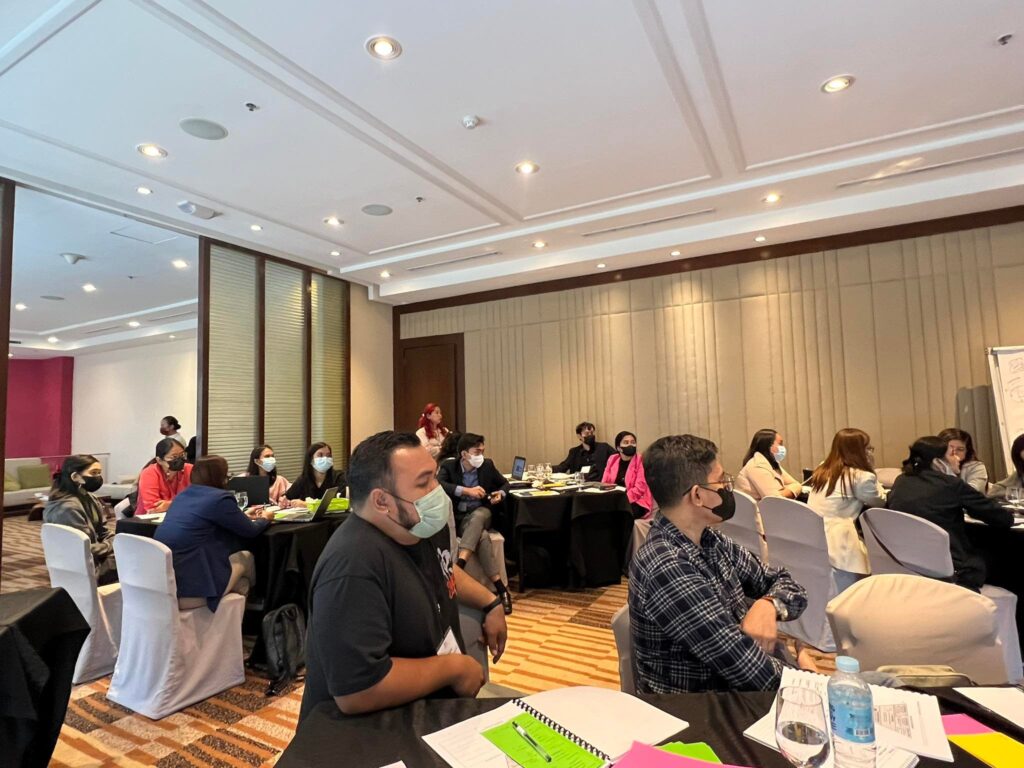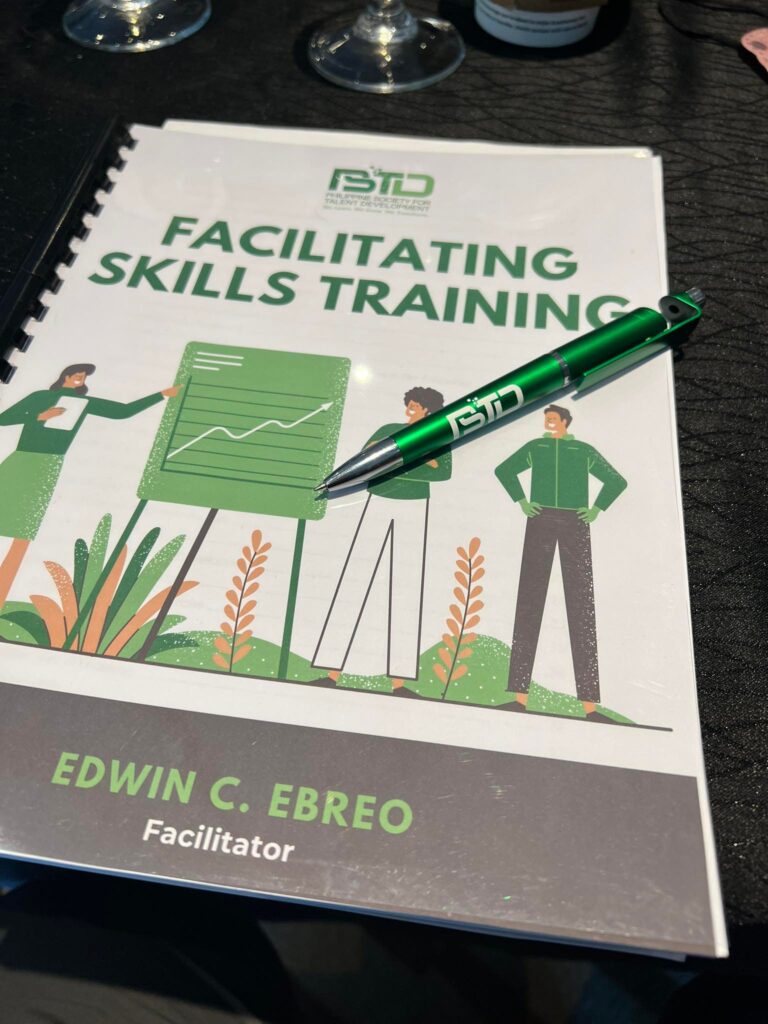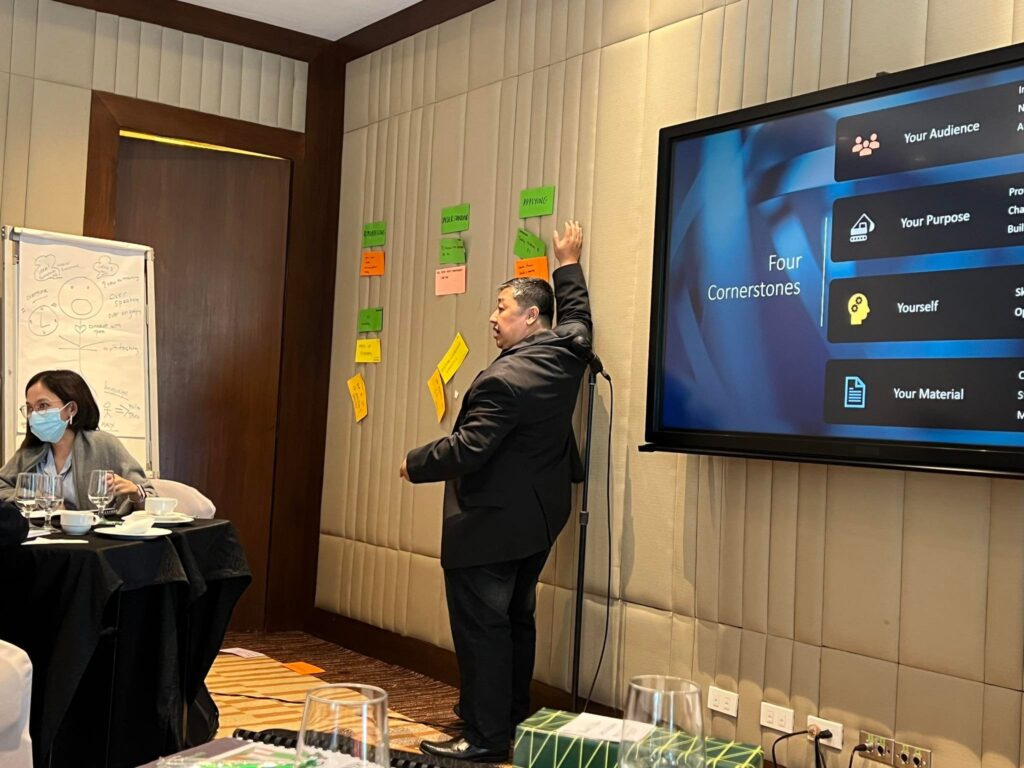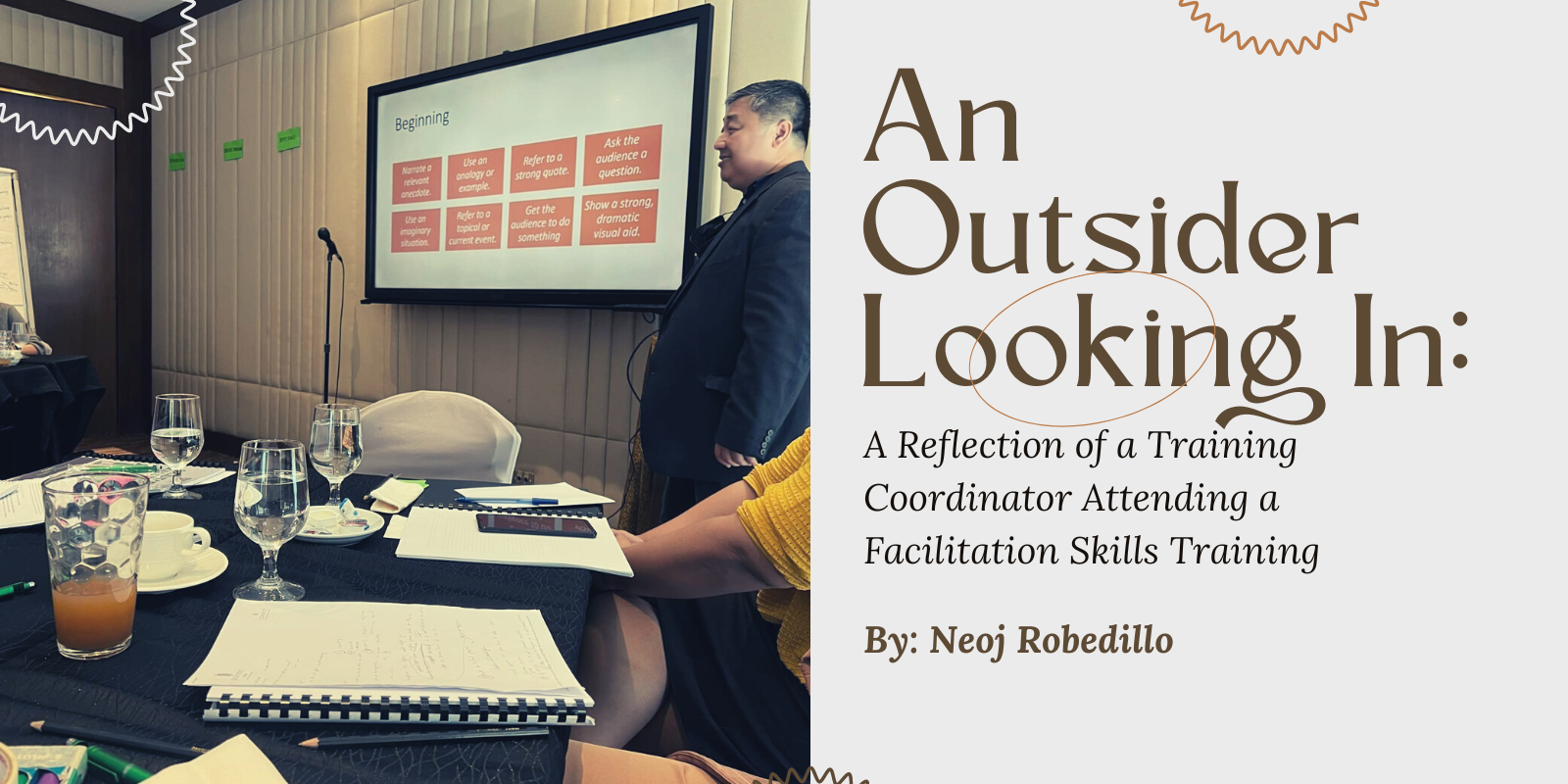What comes to mind when we hear the word “training”?
Is it a waste of time? A form of personal attack? Lack of skill? Or do we perceive it as productive? For personal and professional growth? Skill enhancement?
There seem to be different reactions when people hear the word ‘training’. Some dislike attending training because they view it as a waste of time when they could have been productive in their respective workplaces. Others even dread training because they view it as a form of personal attack since there has been a preconceived notion that people who undergo training lack the professional skills and abilities required to perform their tasks and responsibilities, thus the intervention of relevant training and workshops. However, some individuals see training as an avenue for learning and skill development. They think of training as a safe space to enhance their abilities, make mistakes and learn from them, and most importantly, discover new things about their profession- even themselves.

On a personal level, I am one of both. Back then, I thought of training as a waste of time and a personal attack on my skills and abilities. But as I took up Psychology and embarked on a journey of becoming a Learning and Development professional, I realized that training is as significant as the other facets of Human Resources. In the past, training was a practice that is often overlooked and underestimated. According to the Institute of Training and Occupational Learning (2021), there seems to be a paradigm shift in people when looking at the importance of training. Managers and staff started to perceive it as a vital element in any organization and have a potential return on investment when properly supported and executed. They are starting to recognize the value that training brings to the table and its impact both in the macro and microcosm of professional environments. Again, I am one of those who are building an appreciation for the craft of training and development.
I had a greater appreciation for training when I was given the opportunity to participate in a Facilitation Skills Workshop organized by the Philippine Society for Talent Development (PSTD) last October 11 and 12, 2022, and facilitated by Mr. Edwin Ebreo, President and CEO of ExeQserve Corporation. As a Training Coordinator, it seems like I am an outsider looking in because this particular training was designed to improve the facilitation skills of trainers from different organizations. But that was not the case, as almost half of the participants are just like me who are working on the back ends of a training program. With this session, I got the chance to socialize with various trainers, facilitators, and coordinators and I realized that they all have the same characteristics of being passionate and enthusiastic about what they are doing. It goes without saying that we are interested in knowing more about the ins and outs of training facilitation, and how we can use the learnings we gained to effectively transfer knowledge and understanding to our learners.

The two-day workshop has imparted three points of realization that I would like to share;
- First, be aware of the small things. Small details paint the big picture, and as a training facilitator, being aware of our gestures and body movements, knowing the simple dos and don’ts of facilitating, and how we present ourselves in front of the learners paint our credibility and identity as training practitioners. Being inclusive and fair are also small things that we should get a hold of. This encompasses from using gender-inclusive pronouns down to how we treat them in the learning setting. Also, being aware of the small things within our participants, such as their behavior and participation during workshops, would allow us to strategize and adjust our sessions accordingly. These small things are often neglected but we need to realize that they contribute to the whole training process.
- Second, know our niche. I am a believer in the ‘Jack of All Trades’ adage. However, in training, I recognized the value of knowing our niche and specializing in a particular topic. As Mr. Edwin always emphasizes, we must lean towards the topic that we are so passionate about that we can talk about it for days or even the rest of our lives. We must choose a topic that we are eager to learn about, share with others, and advocate for. Being a “master of one” topic means that we are credible to share and expound our knowledge about it. As a future training facilitator, I realized that it is fine to be knowledgeable about different topics, however, it would be best if we can consider a particular one that we can invest our time with, build our credibility on, and become a subject matter expert that we can converse and share knowledge about.
Lastly, practice, practice, practice. In the workshop, we were given the opportunity to facilitate a topic of our choice to our co-participants, it was a short simulation of a typical training session. With this exercise, I realized that practice is vital in this craft. Practicing the fundamentals of how we should speak and communicate, how we should stand and present ourselves, and how we should deliver the learning transfer to our audience. By practicing, we are not just developing these aforementioned skills but also our confidence as facilitators. Practicing allows us to gain experience and even learning which we can soon share with our participants once we run our own training sessions.

It seems like facilitation has its own pattern; changing depending on the demands but is constant in its purpose of an enhanced way of embedding knowledge and understanding among the participants. In this workshop, I realized how facilitation is a skill that cannot be developed overnight, especially without the awareness of small things that build the whole process, knowing our niche, and lastly, practice. Being a trainer means being able to be trained as well, and as I have said in the beginning, we only have two ways how we react to training; aversion towards it or embracing it as an avenue for learning and growth. Now that I have learned a thing or two after this facilitation skills training, and as an aspiring training facilitator, I will always look at training from the latter’s perspective.
Reference:
Institute of Training and Occupational Learning (2021). Why training is undervalued. ITOP
Official Website. https://www.itol.org/why-training-is-undervalued-pt-1/
By: Neoj Robedillo
Neoj Robedillo is a budding professional in the field of Talent and Development. Earning his degree in Applied Psychology as Magna Cum Laude from the University of the Philippines Diliman, Neoj aspires to become a credible Training Facilitator and a practitioner involved in people and organizational culture. Neoj is currently an HR Associate in ExeQserve Corporation.









